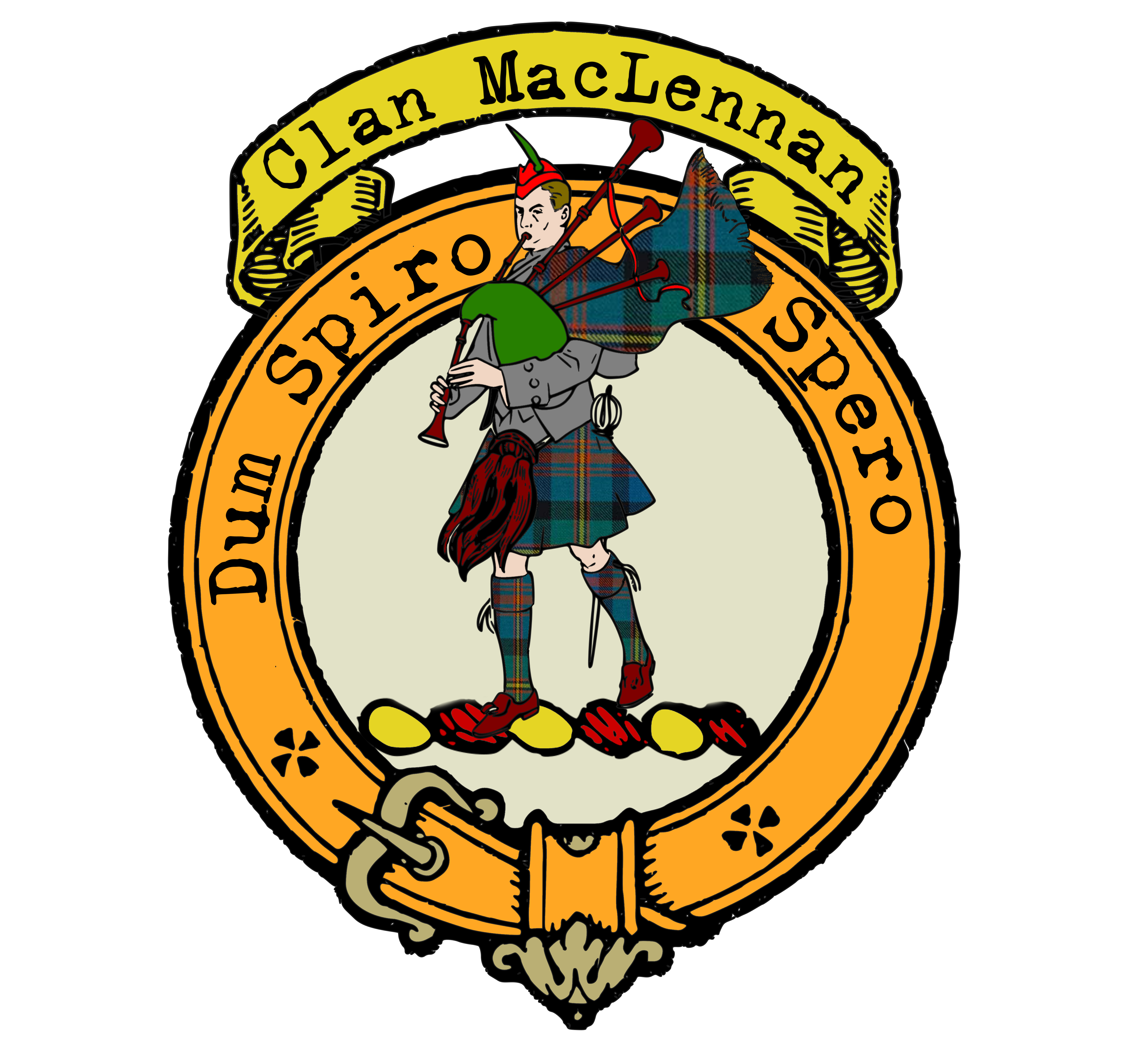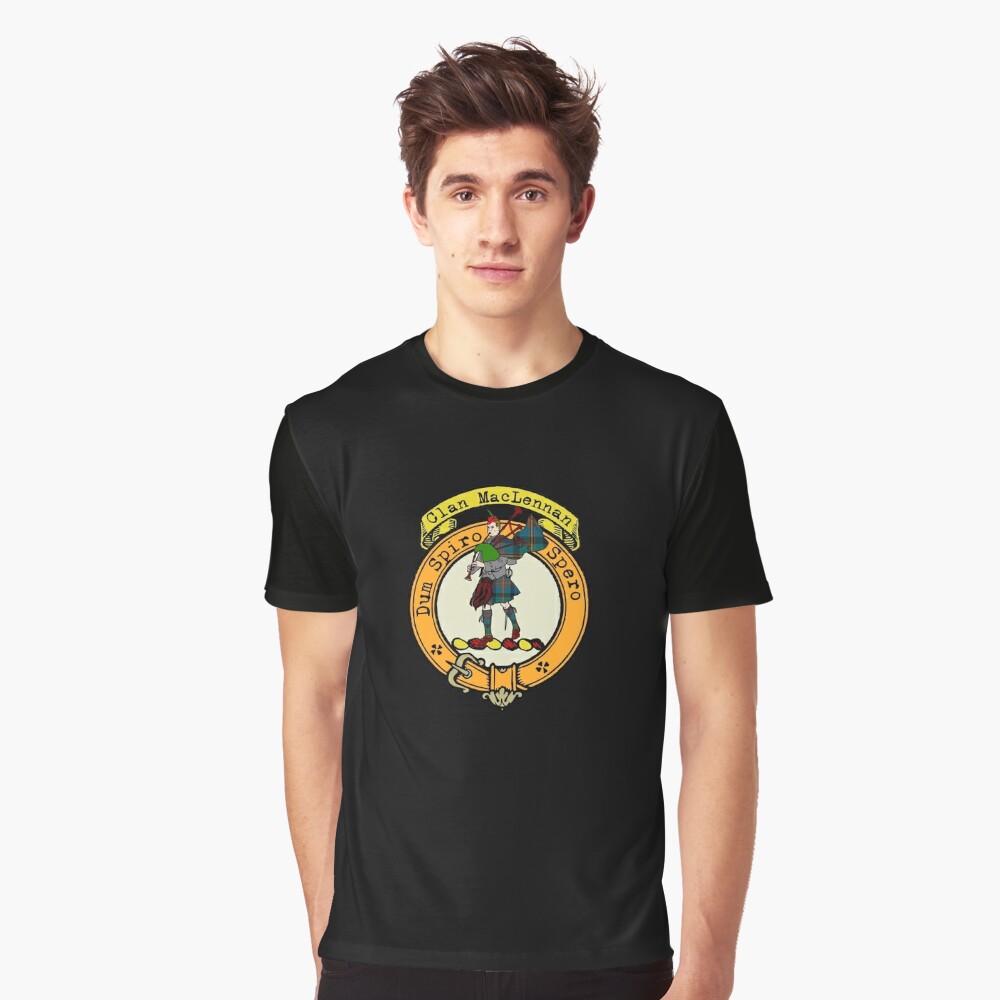Clan MacLennan Crest
|
|
CREST: A demi-piper all Proper, garbed in the proper tartan of the Clan MacLennan MOTTO: Dum spior spero TRANSLATION: While I breathe I hope VARIATIONS: McLennan |
 Rooted in the Gaelic name “Macgille Finnan,” the MacLennans are believed to be the followers of the revered St. Finnan, whose true disciple’s identity has been lost to time. Their history is intricately woven with the Highlands’ rich tapestry, from settling in Kintail to forging alliances with other clans. In this blog post, we explore the captivating journey of Clan MacLennan, from its enigmatic origins to its remarkable legacy. Rooted in the Gaelic name “Macgille Finnan,” the MacLennans are believed to be the followers of the revered St. Finnan, whose true disciple’s identity has been lost to time. Their history is intricately woven with the Highlands’ rich tapestry, from settling in Kintail to forging alliances with other clans. In this blog post, we explore the captivating journey of Clan MacLennan, from its enigmatic origins to its remarkable legacy.
Nestled amidst the breathtaking landscapes of Kintail, the MacLennans found a home that would shape their destiny. Living in proximity to the Logans, who held lands in Easter Ross, further connected them to the wider Highland community. Historical accounts diverge on the original name of the clan. Some argue that the MacLennans were initially known as the Logans and later adopted their current name in the fifteenth century. Legend tells of a tragic event involving the Logans and the Frasers, inspiring the transformation to honor a revered figure known as “gille finnan.” The MacLennans’ coat of arms tells a tale of their associations with other prominent clans. The heart and passion nails symbolize the pilgrimage of Sir Robert and Walter Logan, who accompanied the heart of Robert the Bruce on the Crusades. Additionally, their affiliation with the Mackenzies is represented by the “caberfeidh,” a deer’s head, at the center of their emblem. The MacLennans’ loyalty and valor shone brightly during the Battle of Auldearn in 1645. Despite being heavily outnumbered, they fought alongside Lord Seaforth’s forces, illustrating their unyielding commitment to their alliances. In the aftermath of the Jacobite defeat, the Highland clan system began to unravel. Many MacLennans, like other clansmen, emigrated to distant lands in search of a new beginning and opportunities for the future. In 1976, a renewed sense of identity surged through the MacLennan clan when Ronald MacLennan of MacLennan was recognized as chief. Though not a bloodline chief, his extensive research into the clan’s history reinforced their ancient Celtic origins. Beyond their martial prowess, the MacLennans cultivated a rich tradition as skilled pipers. Their musical legacy transcended generations, with MacLennan pipers playing in Inverness and participating in historic events, including the Battle of Waterloo. |
|
Citations:
|
|

Purchase @ Redbubble
Purchase @ Amazon.com
Purchase @ Amazon.co.uk

